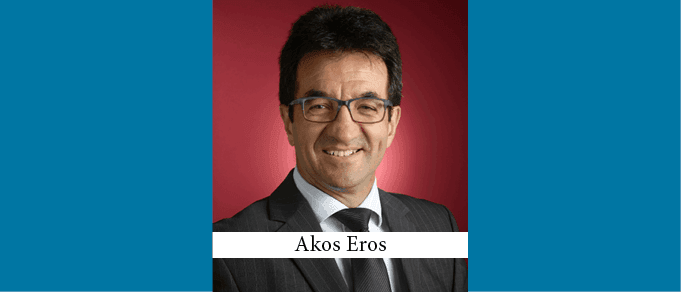As a first-generation lawyer I did not have a profound career perspective when I graduated from law school in the early ‘90s. I saw a job ad in a newspaper – “International law firm looks for junior lawyers” – and even though I had no clue what an “international law firm” was, I had nothing to lose, so I thought it would be worth seeing how a real job interview worked. In the end I was selected and I decided to stay … and I have never regretted that decision.
The economic changes and evolution of the Hungarian legal market have been, relatively, the same as elsewhere in the CEE region, although Hungary’s transition to a market economy was less painful than in other countries of the former Soviet bloc. A consolidated market, open towards capitalism, had already started to form in the late ‘80s, and this encouraged more trade with the West.
The bubbling business opportunities encouraged foreign investments and the sizable deals attracted international law firms to Hungary. Some big firms arrived on a deal basis only, but many of them established a local presence, and almost every Magic Circle and White Shoe law firm appeared in the region. Among others, the former in-house lawyers of the Hungarian state-owned trading companies – “Impex”-es – became the local managing partners of these newly established international law firms. They were the professionals in this field, with international experience, language-skills, and that type of commercial vein, business knowledge, and higher risk propensity that is crucial for this position. The situation was special because our generation was no less prepared than those local lawyers who had been on the market for decades; in this new world we were all rookies. The advisory experience of the customary client-attorney relationship had to be placed on a new, business-centered footing.
I had the chance to learn to practice law first-hand from the sharpest minds (both colleagues and clients) and that was precious. These brilliant international professionals showed us how to do business and how to lead transactions. I was full of enthusiasm and a sense of adventure, ready to absorb the best international standards and practices.
In the first ten years, international law firms focused mainly on privatization and foreign investment projects, all the other practice areas were secondary to M&A transactions. From the 2000s, after the era of privatization calmed down in Hungary, international law firms had to reconsider they strategy in the region and consciously extend their expertise with other practice areas, such as litigation, competition, regulatory, real estate, or labor law, in order to keep their stability.
This was the time when I became managing/equity partner of the Budapest office of the US-based law firm Squire Patton Boggs. I was working with Americans from the very beginning, and I was impressed by their proactive and business-minded approach. We shared the same values in business.
The 2008-2010 crisis strongly affected FDI flows to Hungary, which was reflected in the number of sizable deals. The relatively small markets in the region make the stability and profitability of international law firms more complicated. Many UK-based law firms chose to spin off their offices in the region and transform them into independent local firms, as Freshfields, Linklaters, and Clifford Chance did in Hungary. As a global trend, US law firms like Squire Patton Boggs have diminished their presence in the region. They focus instead on the US market, and although they continue to work on sizable global deals, they now need local guidance in CEE, and often keep a preferred team for referrals. Today, the regional and local law firms in Hungary and in other CEE countries work in close cooperation with some of the world’s largest law firms because the principle remains unchanged: “Winners hunt in packs.”
Americans tend to view their jobs as extensions of themselves, and therefore devote themselves completely to their careers. They consider their work not primarily as a career or financial opportunity but rather as a value in itself. The healthy combination of Hungarian roots and the American way of thinking is a great advantage, I believe. Lawyering in itself is just the base of everything. You have to feel your client’s problem as if it was your own and use your best efforts to provide proactive, solution-oriented advice. If your team shares the vision and understands that commitment and alignment are critical, this can be a key for success.
We are lucky, because as attorneys we regularly have opportunities to be of service, to do things which can have a lasting impact. The opportunities are there. We just need to have the courage to pursue them and be proud of it.
By Akos Eros, Partner, Wolf Theiss
This Article was originally published in Issue 6.4 of the CEE Legal Matters Magazine. If you would like to receive a hard copy of the magazine, you can subscribe here.



